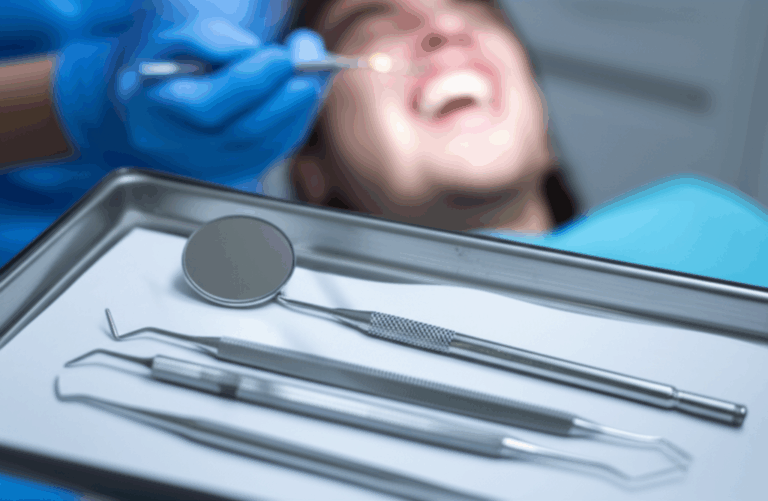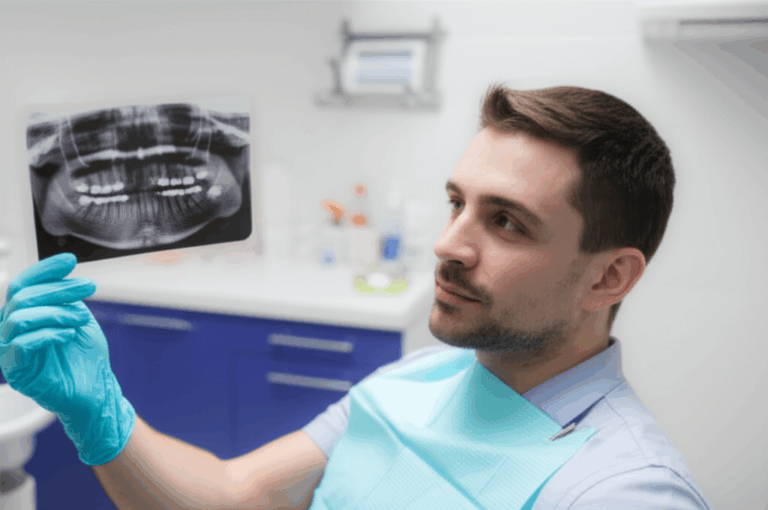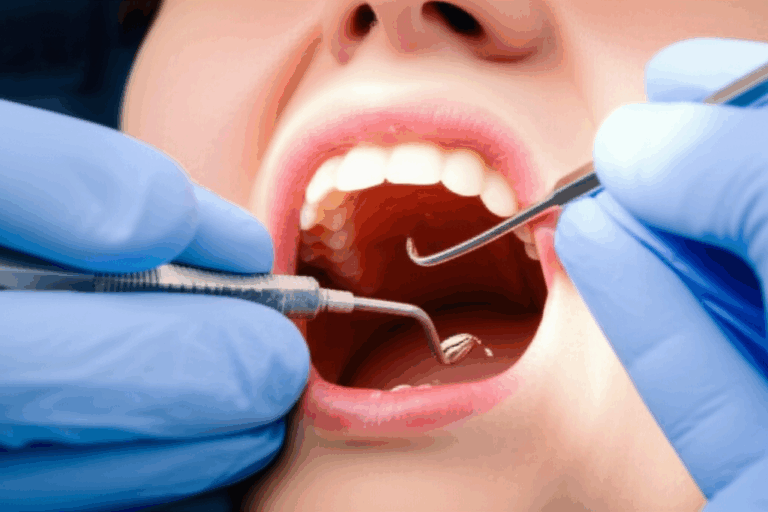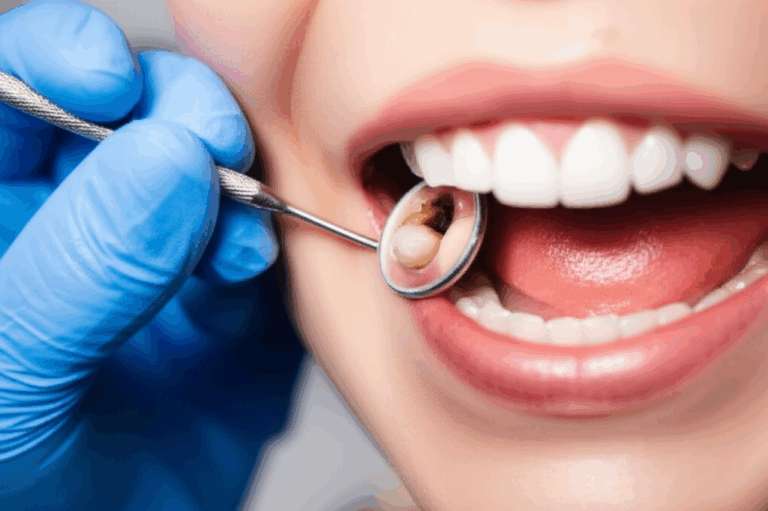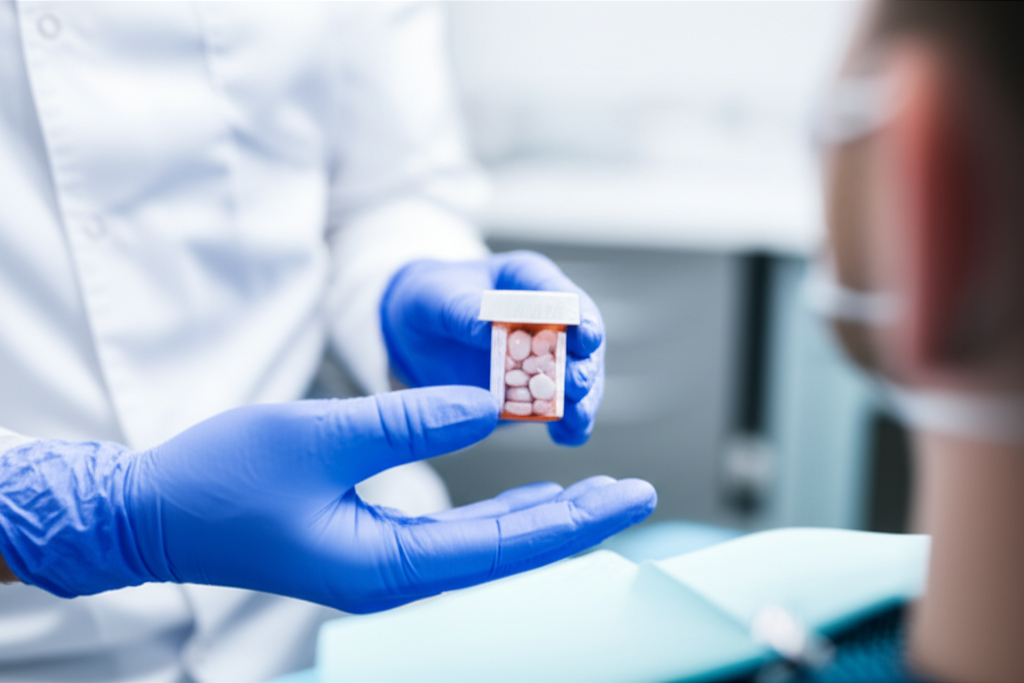
Can a Dentist Give You Pain Meds? Your Easy Guide to Dental Pain Relief
Ever had a toothache that just didn’t quit? Wondering if your dentist can do anything to help? You’re not alone. Lots of people want to know if a dentist can give pain medicine and what to expect during their visit. Let’s make it simple—here’s how dentists help with pain, what medicine they might give, and how they keep you safe. Read on to learn when you might need pain relief, how dentists handle dental pain, and how you can stay as comfortable as possible while getting better.
Table of Contents
Introduction: Why Dental Pain Relief Matters
Dental pain is more than just an annoying problem. Sometimes, pain can make it hard to eat, sleep, or even think clearly. I’ve seen people try to “tough it out” until life just feels awful. No one should have to live like that, especially when dentists can help. Dentists aren’t just tooth doctors—they know all about pain, how it works, and what’s safest to help make it go away.
Dentists learn about how pain moves along nerves, which medicine works best in different situations, and how to spot bigger problems. With all the talk about safe pain medicine right now, it’s good to know what your choices are and how your dentist can help.
Can a Dentist Give You Pain Meds?
Yes, dentists can give you pain medicine. Dentists are trained professionals who spend years in school. They can write prescriptions for pain medicine, antibiotics, and other things needed for dental care, just like regular doctors do.
If pain gets really bad—like after getting a wisdom tooth out, having a really bad toothache, or a root canal—your dentist can suggest and give you stronger pain medicine. They can also tell you if over-the-counter medicine is enough for your kind of pain.
Dentists use rules and advice from the American Dental Association (ADA), state dental boards, and the government. That means your dentist will pick the safest and best pain medicine for you.
When Might You Need Prescribed Pain Medication from a Dentist?
Not all dental pain needs a doctor’s prescription. But sometimes, over-the-counter stuff just doesn’t help. Here are common times you might need stronger medicine:
1. After Surgery
Getting wisdom teeth out, other mouth surgery, or dental implants can hurt a lot at first and make you swell up. Most people need a little help with the pain those first days, so your dentist may give you a short supply of pain pills.
2. Sudden Dental Emergencies
If you break a tooth, get a dental infection (called an abscess, which usually comes with big swelling), or really bad jaw pain, your dentist may need to give you pain medicine until they can fix the problem.
3. Chronic Jaw or Face Pain
Some people hurt for a long time from things like TMJ problems (jaw joint trouble) or trigeminal neuralgia. Dentists sometimes team up with pain doctors to help find what works best.
4. Pain After Other Dental Work
Even after deep cleaning or a root canal, you might need more than your usual Tylenol or Advil, especially if you’ve got sensitive teeth or gums.
Types of Pain Medications Your Dentist Might Recommend
Dentists have a few ways to help pain. Every suggestion is picked to fit you, based on your age, health, what dental work you had, and how you react to different things.
A Quick Table: Common Dental Pain Meds
| Medicine Type | Common Names | When Used | Usual Side Effects |
|---|---|---|---|
| NSAIDs | Ibuprofen, Naproxen | Mild to medium pain | Upset belly, bleeding |
| Acetaminophen | Tylenol | Mild to medium pain, fever | Liver risk (high doses) |
| Opioids | Hydrocodone, Oxycodone, Codeine combos | Strong, short-term pain | Sleepy, sick stomach, constipation, addiction risk |
| Muscle Relaxers | (for TMJ problems) | Jaw pain, muscle spasms | Sleepy, feeling weak |
| Corticosteroids | Dexamethasone | Bad swelling, after surgery | Trouble sleeping, mood changes, high blood sugar |
| Antibiotics | Amoxicillin, Clindamycin, Metronidazole | Infections with pain | Upset belly, allergies |
NSAIDs and Acetaminophen—First Line Defenders
Dentists like to start with the pain medicine that works best and is safest. Most of the time, that’s NSAIDs (like ibuprofen) or acetaminophen (Tylenol).
NSAIDs bring down swelling and stop pain signals. Dentists sometimes tell you to take a little more than what you’d buy at the store, but they keep you safe. Best thing is, these often work just as well (sometimes better) than opioids for tooth pain or after easy extractions.
Acetaminophen is a good helper. If you take it with an NSAID, you get more pain relief without extra risk—unless your liver is not healthy, or you take too much.
If you can’t take NSAIDs (because of allergies, stomach problems, or other medicine you use), acetaminophen is the main choice. Your dentist will explain what’s best for your body.
When Do Dentists Use Opioids?
Opioids like hydrocodone, oxycodone, and codeine were once used more often after dental work. Not anymore. Dentists now are really careful because of safety problems. The ADA, CDC, and states all say: Only use opioids if you really need to.
When might you get an opioid prescription?
- Hard mouth surgery (like tough wisdom tooth removal)
- Bad mouth injury
- When Advil or Tylenol haven’t worked
Even then, you’ll usually only get a few pills for a few days (three or less). Your dentist will talk to you about using them safely, what side effects could happen, and what signs to watch out for, such as feeling very sleepy or constipated.
Remember—opioids are strong and can be risky. Only use as told, and never share them.
How Do Dentists Decide What Pain Meds to Give?
Picking the right pain medicine isn’t just about what hurts most. Dentists look at:
- How Bad and What Kind of Pain: Is it sharp, throbbing, swelling, nerves?
- Your Health History: Allergies? Stomach, liver, or kidney problems? Other medicine you use?
- Risk Factors: Any family history of addiction? Any mental health problems?
- Rules and Advice: Dentists check Prescription Drug Monitoring Programs (PDMPs) to be sure people don’t get unsafe prescriptions.
- What You’ve Already Tried: Did Advil help before? Did you have side effects?
Your dentist will chat with you about these before giving you a prescription. Be open and honest—it keeps you safer.
What to Expect If Your Dentist Prescribes Pain Meds
Let’s say you do need prescription pain medicine. Here’s what usually happens:
Step 1: Clear Directions
Your dentist tells you exactly how much to take, when, and for how many days. If you don’t understand something, ask!
Step 2: Side Effects
They’ll tell you what problems to look for—like drowsiness, upset stomach, or signs of allergy. If anything odd happens, call the office.
Step 3: Mixing with Other Medicine
Dentists remind you not to mix pain medicine with alcohol or with some other medicine—especially sleeping pills, muscle relaxers, or more pain pills.
Step 4: Keeping Pills Safe and Throwing Extras Away
Opioids need to be kept away from kids and pets. Most dentists tell you how to throw away leftovers, or point you to a safe drop-off spot.
Step 5: Follow-Up
Your dentist sometimes checks in later, by phone or in the office, to be sure you’re healing and feeling better.
Are There Alternatives to Medication for Dental Pain?
Some people worry about taking medicine at all. Good news—there are many other safe, simple things you can try:
- Cold Packs: Hold a cold washcloth or ice on your cheek to bring down swelling.
- Heat: A warm washcloth can make muscle pain in your jaw feel better.
- Take It Easy: Rest for a day or two—don’t overdo it.
- Soft Foods: Eat soup, mashed potatoes, or yogurt instead of something hard or crunchy.
- Gentle Jaw Stretches: For jaw pain, your dentist might show you easy exercises.
- Numbing Gels: Some gels or ointments can make your gums feel numb for a little while.
- Distraction: Watching TV, listening to music, or relaxing can help keep your mind off the pain.
These safer ways can really help, especially with good dental care.
How to Talk to Your Dentist About Dental Pain
It’s super important to tell your dentist what’s going on. Don’t be shy or scared to bring up your pain or worries. Here’s how to get the most out of your visit:
Your dentist wants to help—but they need to know your story so they can do it safely.
Common Concerns: Side Effects, Safety, and Addiction
The Worry: Lots of people are scared about getting hooked on pain medicine or having side effects.
Why It’s a Big Deal: You see stories in the news about opioid problems, and that’s scary. Side effects like stomach upset or feeling sleepy don’t sound fun, either. You might wonder if you even need strong medicine.
The Fix: Dentists now follow new rules to keep you safe. They give the smallest dose they can, and just for a short time, and only when it’s truly needed. Using Advil and Tylenol together often works as well as opioids—without so much risk. Your dentist will teach you the safe way to use pain medicine, what bad signs look like, and what to do if you have trouble.
What If the Pain Doesn’t Go Away?
Sometimes, your pain sticks around longer than you thought it would. If that happens:
- Call your dentist right away.
- Say if your pain is getting worse, not better.
- Watch for infection signs (fever, swelling, trouble swallowing).
- Don’t ever take more medicine than your dentist said.
Long-lasting dental pain could mean something deeper (like an infection or nerve issue) needs fixing, or has come back. You might need another checkup, some tests, or maybe a visit to a pain doctor.
Case Studies: Real Examples in the Dental Chair
Let’s peek at what can happen in a dental clinic:
Case 1:
A 20-year-old gets her wisdom teeth out. She goes home with high-dose Advil and three days of hydrocodone with Tylenol. The first day is rough, but after that, she tosses the opioid pills and just uses the Advil. A week later, she’s totally fine.
Case 2:
A man in his forties cracks a tooth on his lunch break. His jaw swells up and hurts so much he can’t sleep. His dentist prescribes amoxicillin to knock out the infection and Tylenol for pain. He never needs opioids—he’s feeling better in a couple days.
Case 3:
A woman with sore jaws from TMJ tries Advil and using a warm pack, but still hurts. The dentist adds a muscle relaxer and teaches gentle jaw exercises. After a month, her pain is much less and she’s sleeping well again.
Everyone’s a bit different—dentists find what works for you, safely.
Internal Support: The Team Behind Your Dentist
Great dental care is a team effort. Lots of dentist offices work with dental labs that make crowns and dentures. For example, a china dental lab can make solid crowns or bridges; a dental ceramics lab shapes fillings to match your teeth; and a removable denture lab crafts custom dentures when you need new teeth.
And if you need something special to help with pain—like a mouth guard for grinding—your dentist may team up with a night guard dental lab to get it done just right.
Your dentist and the helpers they pick work together to make sure your treatment is right for you.
Frequently Asked Questions (FAQ)
Q: Will my dentist always give me pain meds after a procedure?
A: Not every time. If regular medicine from the drugstore works, your dentist may say to use that first. Prescription medicine is for tougher pain.
Q: Can kids get dental pain meds?
A: Dentists are extra careful with kids, usually starting with Advil or Tylenol. Opioid pain pills are almost never given to children and only if there’s no other way.
Q: What happens if I’m pregnant?
A: Tell your dentist right away. Some pain and infection medicines are okay, some aren’t. Your dentist will pick the safest ones for you and your baby.
Q: If I’m still hurting, can I ask for stronger pills?
A: If your pain isn’t controlled, tell your dentist. Don’t take more than you were told. Your dentist can change your treatment the safe way.
Key Takeaways: What You Should Remember
- Dentists can give you pain medicine when needed—they know how to keep you safe.
- Most dental pain is treated with ibuprofen and acetaminophen first, not opioids.
- Opioids are only for short, really bad pain, and only for a few days.
- Talking with your dentist makes your care better and safer.
- Always follow directions, tell your dentist if you have trouble, and never share or overuse pain pills.
- Good dental care is done by a team—your dentist, your helpers, and their labs want you feeling better fast.
You shouldn’t have to suffer through dental pain alone. Trust your dental team, ask questions, and look out for your health. Better days are close by!

